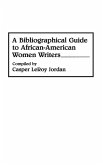This is a profound study of how contemporary Arab American women writers who have been marginalized and silenced, especially after 9/11, are pointing out the racism, oppression, and marginalization they experience in the United States and are beginning to uncover the particularities of their own ethnic histories. The book focuses mainly on four works by contemporary Arab American women writers: A Border Passage (1999) by Leila Ahmed, Emails from Scheherazad by Mohja Khaf, West of the Jordan (2003) by Laila Halaby, and Crescent (2003) by Diana Abu-Jaber, examining how each of these works uniquely tackles the idea of having a hyphenated identity--an identity that has been complicated by living in a hostile environment and living in a borderzone. In this book, the author articulately examines how Leila Ahmed, Mohja Khaf, Laila Halaby, and Diana Abu Jaber explore what it means to belong to a nation as it wages war in their Arab homelands, supports the elimination of Palestine, and racializes Arab men as terrorists and Arab women as oppressed victims, while investigating the themes of exile, doubleness, "split vision," and difference. Using postcolonial and feminist literary theories, the author insightfully investigates how these Arab American women writers critique intellectual tendencies that might be understood as making concessions to Western and Orientalist fundamentalist regimes and movements that in effect abandon Arab women to their iron rule.
Bitte wählen Sie Ihr Anliegen aus.
Rechnungen
Retourenschein anfordern
Bestellstatus
Storno









